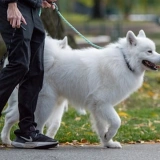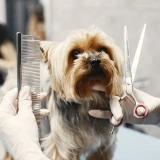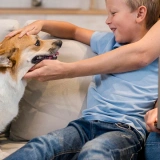Chipoos inherit intelligence and trainability from the Poodle, and confidence or sassiness from the Chihuahua. They are often fast learners but may be a bit stubborn, especially if pampered too much.
They thrive on attention and do best in homes where they’re not left alone for long periods. They love toys, learning tricks, and cuddling with their people. Due to their small size and bold personality, early socialization is essential to reduce yappy or overprotective behavior.
Their coat may be curly or wavy and is often low-shedding, though grooming needs vary. Regular brushing and occasional trimming are needed to keep them comfortable and tidy.







